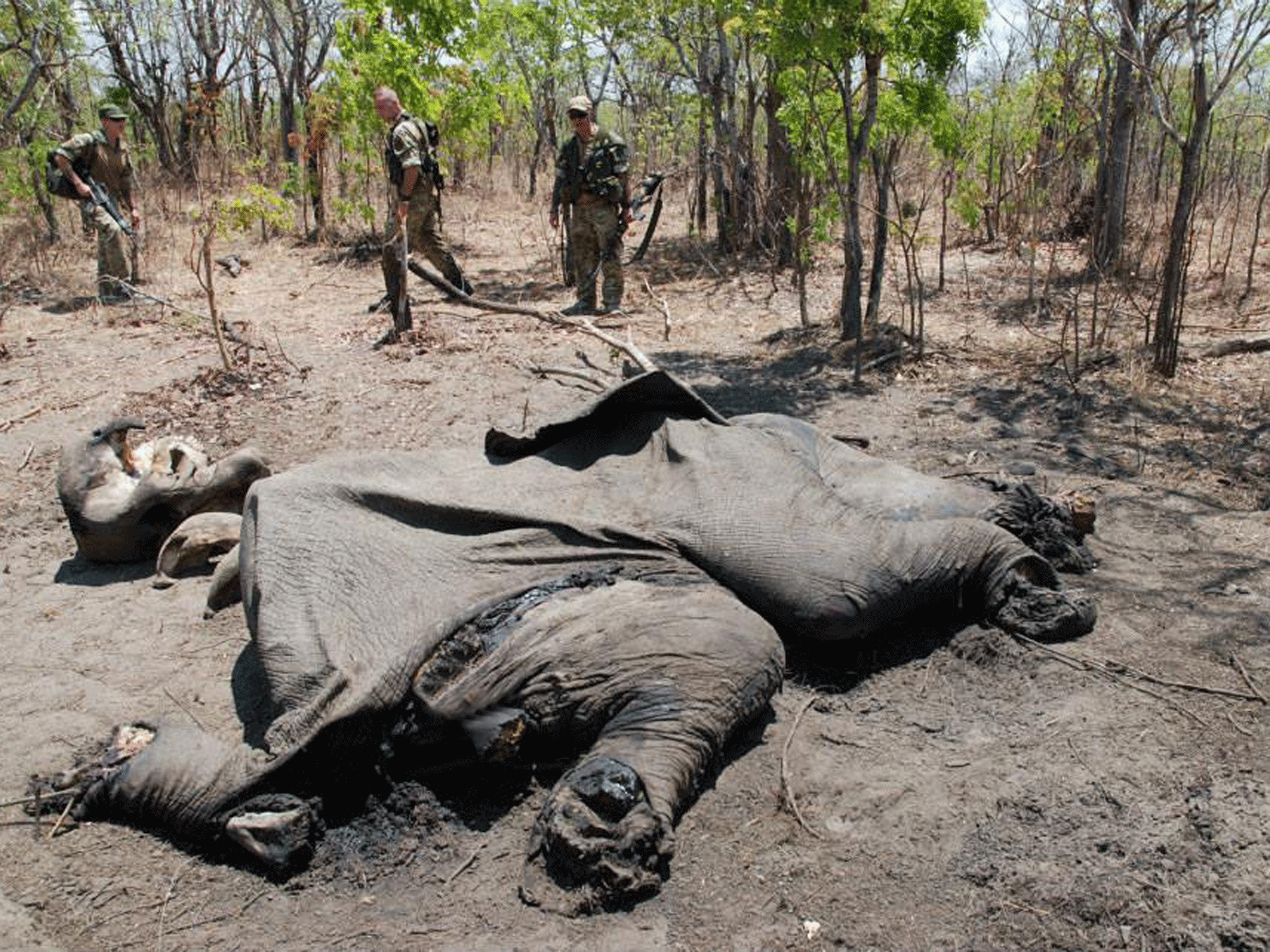Sale of ivory to be banned in the UK as part of government plan to help protect elephants
Government says ban announced by Michael Gove is one of the toughest in the world

Your support helps us to tell the story
From reproductive rights to climate change to Big Tech, The Independent is on the ground when the story is developing. Whether it's investigating the financials of Elon Musk's pro-Trump PAC or producing our latest documentary, 'The A Word', which shines a light on the American women fighting for reproductive rights, we know how important it is to parse out the facts from the messaging.
At such a critical moment in US history, we need reporters on the ground. Your donation allows us to keep sending journalists to speak to both sides of the story.
The Independent is trusted by Americans across the entire political spectrum. And unlike many other quality news outlets, we choose not to lock Americans out of our reporting and analysis with paywalls. We believe quality journalism should be available to everyone, paid for by those who can afford it.
Your support makes all the difference.The trade of items made from ivory will be banned in the UK in a bid to help protect elephants, ministers have announced.
The ban, which the government said will be the toughest in Europe and one of the toughest in the world, will cover items of any age, not just those containing new ivory.
Under plans announced by the environment secretary, Michael Gove, anyone who continues to illegally trade ivory will face an unlimited fine or a jail sentence of up to five years.
The ivory trade is a major cause of declining numbers of wild elephants, as poachers continue to hunt endangered species for their valuable tusks.
The number of wild elephants has dropped by almost a third in the last decade alone and around 20,000 are still being slaughtered for their tusks each year.
The international trade in illegal ivory is estimated to be worth £17bn each year.
It is unclear when the UK ban will come into effect but government sources said the legislation will be placed before parliament as soon as possible.
The move follows a wide consultation on making the trade in ivory illegal, with 88 per cent of respondents saying they supported a ban.
Announcing the policy, Mr Gove said: “Ivory should never be seen as a commodity for financial gain or a status symbol, so we will introduce one of the world’s toughest bans on ivory sales to protect elephants for future generations.
“The ban on ivory sales we will bring into law will reaffirm the UK’s global leadership on this critical issue, demonstrating our belief that the abhorrent ivory trade should become a thing of the past.”
Several types of ivory item will be exempted from the ban, including those that were made before 1947 and contain less than 10 per cent of the substance.
Musical instruments that were made before 1975 and contain less than 20 per cent ivory will also be allowed to be traded, as will antique items that are especially rare. Museums will be allowed to buy and sell ivory items.
The ban is the latest in a string of environmentally friendly policies announced by Mr Gove’s department.
It has banned plastic microbeads and pesticides harmful to bees, announced plans to introduce a bottle deposit scheme and a new “Northern Forest”, made CCTV compulsory in slaughterhouses, made plans to reintroduce beavers in some areas and pledged to abolish all plastic waste by 2040.
The Conservatives hope a focus on environmental policies will help win back the support of younger voters.
Other countries have already banned the trade in ivory, but many allow older items to be bought and sold.
In the US, for example, ivory items that are more than 100 years old can still be traded, as can those that contain up to 50 per cent of the substance.
Trade in raw ivory is already illegal in the UK but buying and selling items made from the substance is largely unrestricted providing they were made before 3 March 1947. Any made after this date require a certificate before they can be traded.
UK government ministers recently called for all EU member states to ban the commercial trade in raw ivory within the EU. The bloc is currently consulting on what further action it could take to reduce the trade.
The announcement of a UK-wide ban was welcomed by animal rights campaigners, but some warned that more action is needed.
Tanya Steele, chief executive at WWF, said: “Around 55 African elephants are killed for their ivory a day, their tusks turned into carvings and trinkets. This ban makes the UK a global leader in tackling this bloody trade and it’s something WWF has been fighting hard for.
“But if we want to stop the poaching of this majestic animal, we need global action. We hope the UK will continue to press countries where the biggest ivory markets are, most of which are in Asia, to shut down their trade too.”
Matthew Hatchwell, director of conservation at the Zoological Society of London, said: “Legal domestic ivory markets are intrinsically linked to the illegal ivory trade that is driving the current poaching crisis. With almost 20,000 elephants poached in the last year, it is vital that countries take significant steps such as those outlined by the UK government today to close their markets and help make the trade in ivory a thing of the past.
“No one in the UK today would dream of wearing a tiger-skin coat. Thanks to this move, in a few years’ time we believe the same will be true for the trade in ivory.”
Join our commenting forum
Join thought-provoking conversations, follow other Independent readers and see their replies
Comments